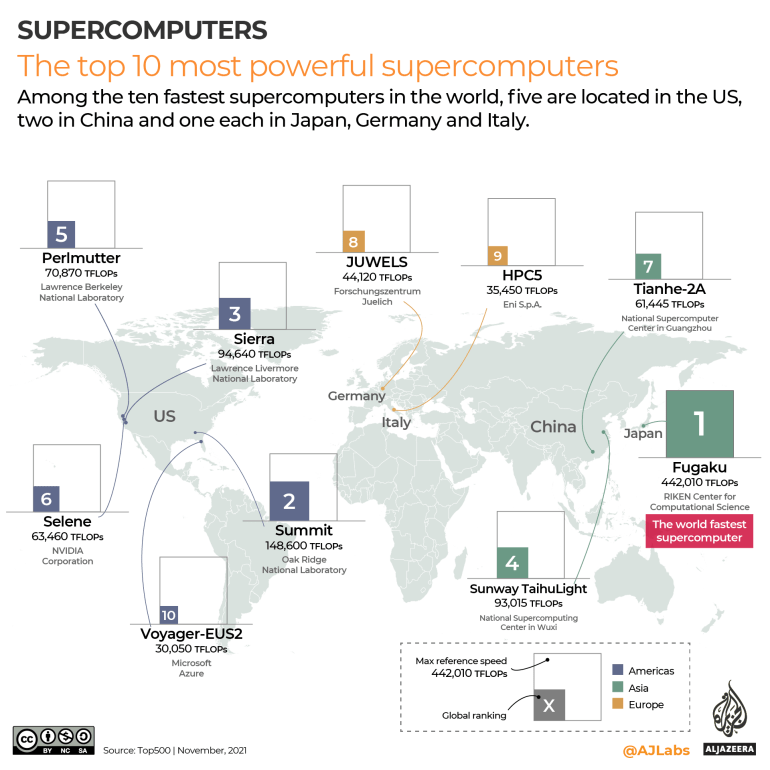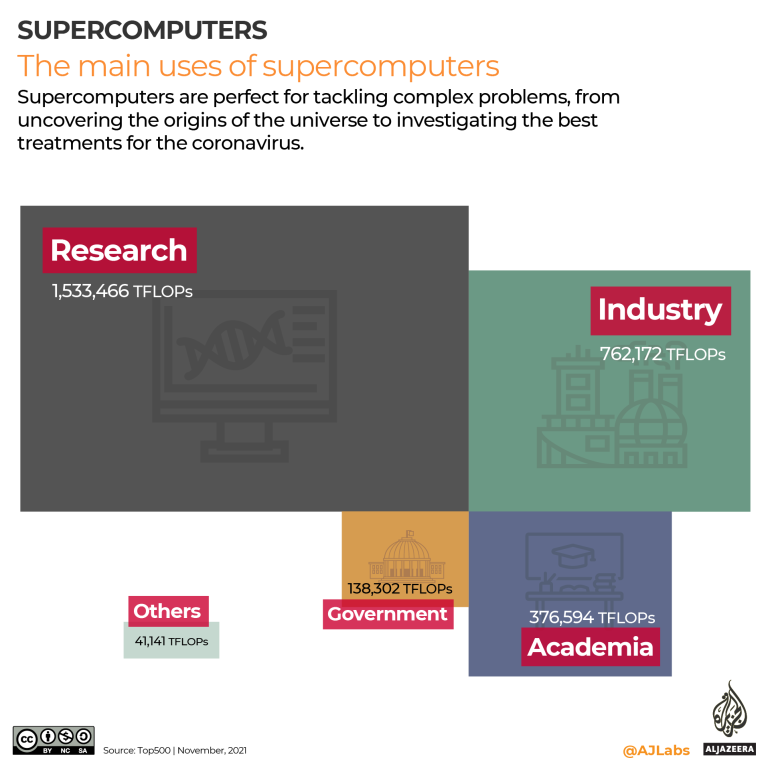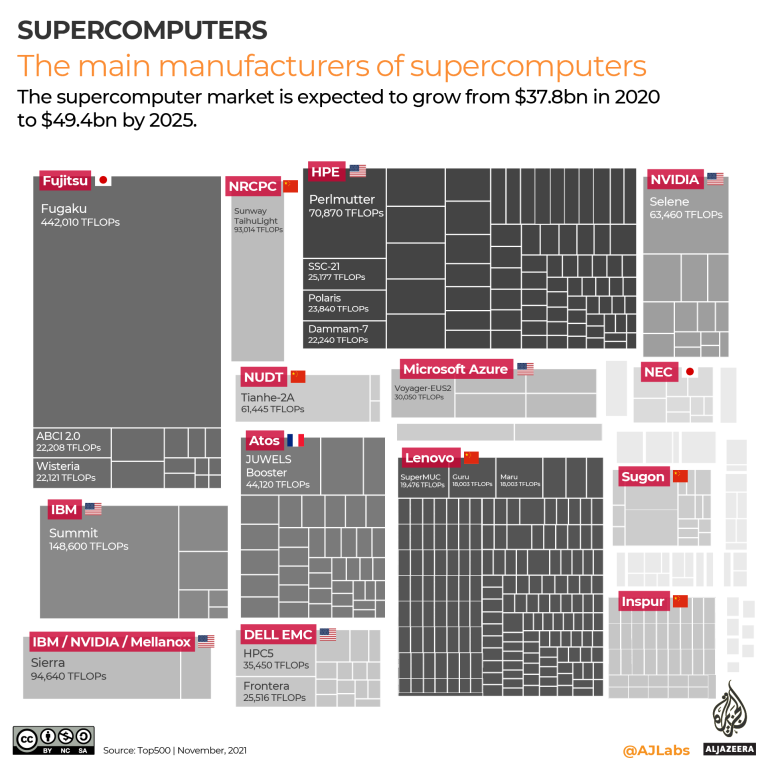Among the 10 fastest supercomputers in the world, five are located in the US, two in China and one each in Japan, Germany and Italy.
They are the most powerful machines on Earth, used in everything from investigating the best treatments for the coronavirus to uncovering the origins of the universe.
Capable of performing quadrillions (the number represented as one followed by 15 zeros) of calculations per second, supercomputers are central in the global technology and information race – one that is particularly fierce between China and the United States.
How is computing performance measured?
Inside every mobile phone, laptop and desktop computer lies a central processing unit, or CPU, often referred to as the brain of a computer.
While a typical computer may have one CPU with one to 16 cores – individual processing units – a supercomputer can contain thousands or even millions of cores, each allowing them to execute very specialised computer operations.
The speed of a supercomputer is determined by the number of arithmetic calculations it can perform in one second – known as FLOPs (floating-point operations per second).
Advances in computing power have meant that speed is now measured in teraFLOPs (trillions) and petaFLOPs (quadrillions) of operations per second. To put that in context, an iPhone 11 is at least six times faster than the fastest supercomputer in the world in 1993.
 (Al Jazeera)
(Al Jazeera)The world’s most powerful supercomputers
According to Top500, which ranks computers around the world, as of November 2021, the Fugaku supercomputer located at RIKEN Centre for Computational Science in Kobe, Japan is the world’s fastest supercomputer.
The $1bn powerhouse has 7,630,848 cores, consumes 29,899 kilowatts of power and has reached a maximum performance of 442,010 teraFLOPs.
Fugaku has at least three times the processing power as the world’s second-fastest computer known as Summit – an IBM-built system at the Oak Ridge National Laboratory (ORNL) in Tennessee, the US which measured 148,600 TFLOPs.
Among the 10 fastest supercomputers in the world, five are located in the US, two in China and one each in Japan, Germany and Italy.
 (Al Jazeera)
(Al Jazeera)The race to build the world’s fastest supercomputers (1993-2021)
Since 1993, the computational power of supercomputers has increased from 124 GFLOPs to 442,010 TFLOPs – a 3.5 million-fold increase.
For most of the 1990s and 2000s, the US and Japan were head-to-head in claiming the title of the world’s fastest supercomputer. However, in 2010, China took the number-one slot away from Japan and the US for the first time with the introduction of Tianhe-1A, a 2,566 TFLOP system built with Intel processors.
The main uses of supercomputers
Supercomputers are excellent at tackling complex problems in a range of fields.
By total computing power in TFLOPs, the world’s supercomputers are mainly used in scientific research (1,533,466 TFLOPs), industrial applications (762,172 TFLOPs) and academia (376,594 TFLOPs).
 (Al Jazeera)
(Al Jazeera)Which are the main technology companies?
The supercomputer market is expected to grow from $37.8bn in 2020 to $49.4bn by 2025, according to market research company Technavio.
The world’s largest manufacturer of supercomputers is Hewlett Packard Enterprise (HPE). The Houston, Texas-based multinational enterprise has at least 84 operating supercomputers with a combined output of 564,245 TFLOPs. As of 2021, 149 of the world’s top 500 most powerful supercomputers were based in the US.
The world’s second-largest supercomputer manufacturer is Japan’s Fujitsu with a combined output of 548,646 from its 14 supercomputers.
In third place is Lenovo. The Chinese tech company has a combined output of 459,463 from its 180 supercomputers. As of 2021, 173 of the top 500 most powerful supercomputers were based in China.
 (Al Jazeera)
(Al Jazeera)"world" - Google News
January 14, 2022 at 02:13PM
https://ift.tt/33jt40b
Visualising the race to build the world’s fastest supercomputers - Al Jazeera English
"world" - Google News
https://ift.tt/3d80zBJ
https://ift.tt/2WkdbyX
Bagikan Berita Ini














0 Response to "Visualising the race to build the world’s fastest supercomputers - Al Jazeera English"
Post a Comment